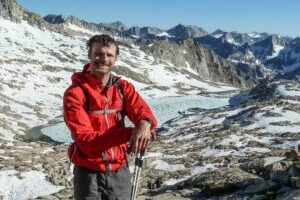From The Washington Post: “I’ve worked as a backpacking guide in Yosemite National Park and Point Reyes National Seashore for over a decade. On an average workday, I’ll patch a client’s blistered feet in the rain, shoo away bears, and make daiquiris for folks using rum, Kool-Aid, and snow. But the truth is that I’ve spent most of my adult life avoiding people — because before I became a guide, I’d been a victim of one of the largest mental health care fraud scams in the history of the United States.
When I was 15 in 1987, my school counselor called my estranged parents and told them I was suicidal after I’d given away my skateboard. She said it was a call for help. I told them it wasn’t true.
‘I bought another board,’ I said. ‘My friend broke his, so I gave him mine. I wanted a different one.’
It didn’t matter.
The next day they signed me into a psychiatric hospital owned by a company that would eventually plead guilty to paying kickbacks and bribes for patient referrals, leading to the largest settlement ever between the federal government and a health care provider at the time.
I spent 11 months sitting in a chair facing the pastel-colored wall of my room, sometimes for up to 12 hours a day. The staff called it ‘chair therapy.’ They said I was supposed to think about my problems.
Most days I was forced to eat alone in my room, with a tray of food resting on my lap while I stared at the wall. I wasn’t allowed to go outside, touch anyone, or speak privately with my parents or other patients. I eventually grew so sensory deprived I could smell rain or sweat on the incoming staff’s clothing, even from a distance. By the time I left the hospital, I was the scattered wreckage of a teenager. The chaos and noise of the world filled me with a superheated rage. I spent most of high school fantasizing about publicly hanging myself from the rafters of the gym.
But the one thing that brought me genuine happiness, that quieted my flashbacks and intrusive thoughts, was being outside. After nearly a year of living in the equivalent of solitary confinement, even the sight of a few finches splashing in a rainy puddle brought tears to my eyes. Every detail of the natural world seemed surreal now.
Before I began working as a guide, I’d long believed that other people were better or more normal than me. Only a handful of my friends knew details of my past, that I’d watched the hospital staff strap kids to beds, sometimes for weeks and months at a time. One of my closest friends from the unit had been tied to his bed with leather Posey restraints for nearly a year. Angry red bedsores surrounded his wrists and ankles when he was finally released. He needed physical rehabilitation before he could walk again.
It wasn’t until I began spending days in the backcountry with clients that I realized I wasn’t different from them; they weren’t better or more normal than me. They were alcoholics or cutters or parents who had alienated their kids. They had lost siblings and spouses to cancer and suicide. Once, early in my first season, a freckled woman from Boston, with the accent to prove it, broke down in tears while we were carrying water back to camp.
‘My dad died last year,’ she said. ‘He won’t be there to walk me down the aisle. He’ll never be a grandfather to my kids.’
Her partner was on the trip with her. He had proposed the day before, at the foot of Yosemite’s Bridalveil Fall, hours before meeting us.
I stood there, dumbfounded, listening to her grieve the loss of her father. She was sitting on a log in front of an enormous Ponderosa pine, its graceful branches hovering over her, as if her father were trying to comfort her again.
I knew at that moment that I’d found my place in the world, and that I needed to come to terms with my past, but I never would have found the courage without the serenity of nature and the help of my clients.”

***
Back to Around the Web











